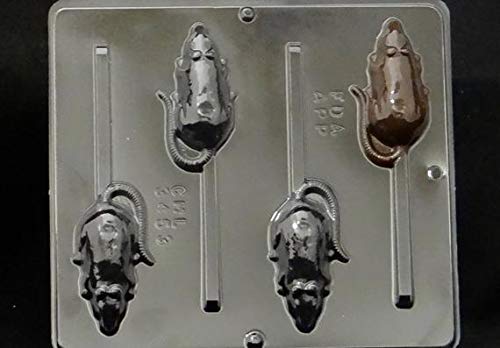victoria
Well-Known Member
I got a call this morning with the histopathology results for Sophie. Part of the reason I had it done is I felt that I have more respiratory issues than most people seem to have, or at least that they are more persistent even though I think I do a pretty decent job of providing a healthy environment and diet for my rats. I got a quick run through (there was a lot going on) but one of the things that stuck out was the Bacillus infection she mentioned. I asked about CAR Bacillus before and she wasn't sure what I was talking about and it didn't immediately dawn on me when she called that Cilia-Associated Respiratory Bacillus is the same thing. Duh.
I have to go pick up Batryl today anyway so I will pick up the report and make sure it is in fact CAR B and not some other type of Bacillus but I'm unsure of what to do or think. I have bunnies and they have had contact with my rats at some point, so they certainly have it too. (It's quite possible they introduced it... they were adopted by a friend and were prone to chronic URIs at the time. URIs are not so chronic now, but they come about easily - especially when they insist on peeing on the blanket in their pen no matter how many times I change it.) It's not clear how easily it's transmitted, so even if I let my two colonies die off (they have both been exposed as I have tried intros at various points) my bunnies could potentially re-transmit it to new rats. It's also not something that can be screened for through quarantine as carriers can be asymptomatic, so there's also the question of how common it is in the domestic rat population and what the likelihood of reintroducing it back into my home if I do eradicate it. (Especially since I get my rats from bad situations, not that there are rats with healthy, reliable backgrounds here.) That said, I don't think it's fair to continue to knowingly expose rats it. (I had contacted a woman about a rat found in a building before this, I don't know what to do.)
I know there are other members that have dealt with this, I'm wondering what their thoughts are. I also wonder if other members have had histopathology done and what sorts of things they have found. (How common is CAR B, from those samples that have been screened?)
I have to go pick up Batryl today anyway so I will pick up the report and make sure it is in fact CAR B and not some other type of Bacillus but I'm unsure of what to do or think. I have bunnies and they have had contact with my rats at some point, so they certainly have it too. (It's quite possible they introduced it... they were adopted by a friend and were prone to chronic URIs at the time. URIs are not so chronic now, but they come about easily - especially when they insist on peeing on the blanket in their pen no matter how many times I change it.) It's not clear how easily it's transmitted, so even if I let my two colonies die off (they have both been exposed as I have tried intros at various points) my bunnies could potentially re-transmit it to new rats. It's also not something that can be screened for through quarantine as carriers can be asymptomatic, so there's also the question of how common it is in the domestic rat population and what the likelihood of reintroducing it back into my home if I do eradicate it. (Especially since I get my rats from bad situations, not that there are rats with healthy, reliable backgrounds here.) That said, I don't think it's fair to continue to knowingly expose rats it. (I had contacted a woman about a rat found in a building before this, I don't know what to do.)
I know there are other members that have dealt with this, I'm wondering what their thoughts are. I also wonder if other members have had histopathology done and what sorts of things they have found. (How common is CAR B, from those samples that have been screened?)











































